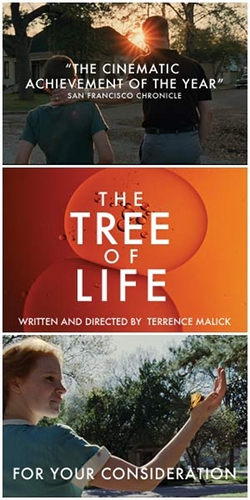Review: Fish Tank (2009)
Cast: Katie Jarvis, Michael Fassbender, Kierston Wareing
Director: Andrea Arnold
Country: UK | Netherlands
Genre: Drama
Official Trailer: Here
The gritty and emotionally exhausting Fish Tank (2009), from British writer/director Andrea Arnold, reveals the disheartening life of 15-year-old Mia (Katie Jarvis) living in the slums of Essex with her selfish and promiscuous mother, Joanne (Kierston Wareing), and her doomed younger sister Tyler (Rebecca Griffiths).
In her breakout role as Mia, Jarvis unleashes a fury of emotional intensity one cannot help but connect with. We learn almost immediately that she is completely and utterly alone. Through a voicemail and simple exchanges, one can deduce that she’s recently been in a fight with her best friend and no longer has anyone else close to her. She, a victim of her surroundings, is crass but not stupid. She copes with her bitter mother and frustrating living situation by lashing out, but she is not a lost cause. She struggles with her dream to become a hip-hop dancer, and uses her dancing as an outlet to escape her painful reality.
In her breakout role as Mia, Jarvis unleashes a fury of emotional intensity one cannot help but connect with.
 Michael Fassbender delivers a magnificent, albeit unsettling, performance as Joanne’s less-than-honorable boyfriend, Connor. He is a man who exploits Mia and her family for his own frivolous desires, yet offers her minimal support and encouragement. He is a complex and seriously flawed character that Fassbender dynamically brings to life.
Michael Fassbender delivers a magnificent, albeit unsettling, performance as Joanne’s less-than-honorable boyfriend, Connor. He is a man who exploits Mia and her family for his own frivolous desires, yet offers her minimal support and encouragement. He is a complex and seriously flawed character that Fassbender dynamically brings to life.
With Fish Tank, Andrea Arnold creates a world limited to the perception of Mia. The audience travels with Mia on her daily routine and learns about her world as she encounters the people and places within it. Arnold achieves this by the use of handheld camera work that focuses on Mia – moving when she moves, seeing what she sees. The frame is usually full with her image and rarely reveals what’s ahead of her. This way, the audience takes on Mia as a temporary identity for the duration of the film. Viewers experience awkward, tense and even dangerous moments as if enduring them themselves, with no visual hints to what may come next. The cinematography is, on a whole, claustrophobic and urgent. These overt decisions in cinematography do their job well. Audiences are tense and uneasy throughout the entire film.
Arnold achieves this by the use of handheld camera work that focuses on Mia – moving when she moves, seeing what she sees. The frame is usually full with her image and rarely reveals what’s ahead of her.
 Negative sexual tension is rife in Fish Tank. It begins with Mia watching a group of neighborhood girls practice provocative dance moves in front of a group of young male voyeurs, then escalates with an assault in the junkyard by two brothers who own the horse she tries to free, and culminates with the interactions and eventual sexual contact between her and Connor. Easily one of the most uncomfortable scenes one will ever sit through, the sex scene between Mia and Connor is intensified by the close cinematography and moments in the sound design of Connor’s amplified breathing. The hypnotizing rhythm of his inhales and exhales increases tension and urgency. And this is only the beginning of a string of bad incidents for Mia.
Negative sexual tension is rife in Fish Tank. It begins with Mia watching a group of neighborhood girls practice provocative dance moves in front of a group of young male voyeurs, then escalates with an assault in the junkyard by two brothers who own the horse she tries to free, and culminates with the interactions and eventual sexual contact between her and Connor. Easily one of the most uncomfortable scenes one will ever sit through, the sex scene between Mia and Connor is intensified by the close cinematography and moments in the sound design of Connor’s amplified breathing. The hypnotizing rhythm of his inhales and exhales increases tension and urgency. And this is only the beginning of a string of bad incidents for Mia.
As a girl who has learned to heavily protect herself, the severity of letting her guard down in the ultimate way to a man has a sever psychological effect on her. She can’t let go of him, and discovers some ugly truths about Connor that cause her to make awful choices out of jealousy and rage. Near the film’s end, she attends a dance audition that turns out to be not exactly what she was hoping for. She stands on stage in a seedy club as “California Dreamin’” wafts through the room. In that moment, something clicks inside Mia. She becomes disillusioned, for better or worse. In the end, she elects to leave her situation and move away with a newly made friend. The next to last scene is of Mia saying goodbye to Joanne and Tyler by dancing in mirrored synchronization to “Life’s a Bitch” by rapper Nas. Nothing could be more appropriate.
Fish Tank examines, through Mia, a social group of people who are trapped in degrading and cyclical lives. They’re taken advantage of, chewed up and spit out. People may dream of something more, but lack the drive or will to grab it. Mia tries hard to succeed, which makes it heartbreaking to see her digress so greatly in the middle of the film. But not all is lost. Her personal victory of moving away from her mother is a small step into becoming what she wants to be in life. Mia is smart and ambitious, and she has goals. Audiences find themselves rooting for her to overcome all the social obstacles that threaten to wrap her up tight and never set her free.
What is so refreshing and rich about Arnold’s Fish Tank is that it’s brutally honest – honest about society, honest about human needs and wants, and honest about hope. It’s provocative and engaging, as well as beautifully shot. It will assuredly leave you breathless.



















